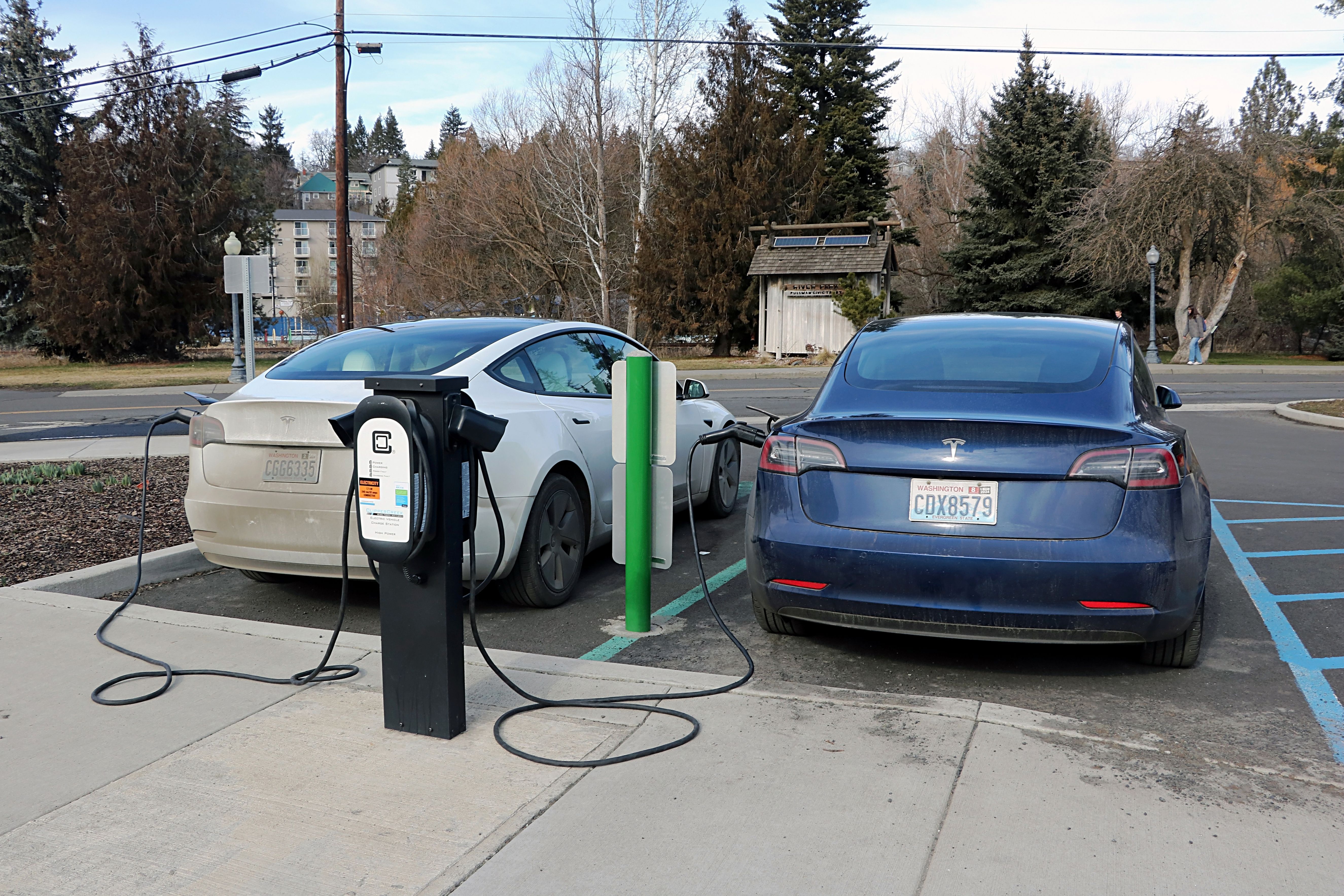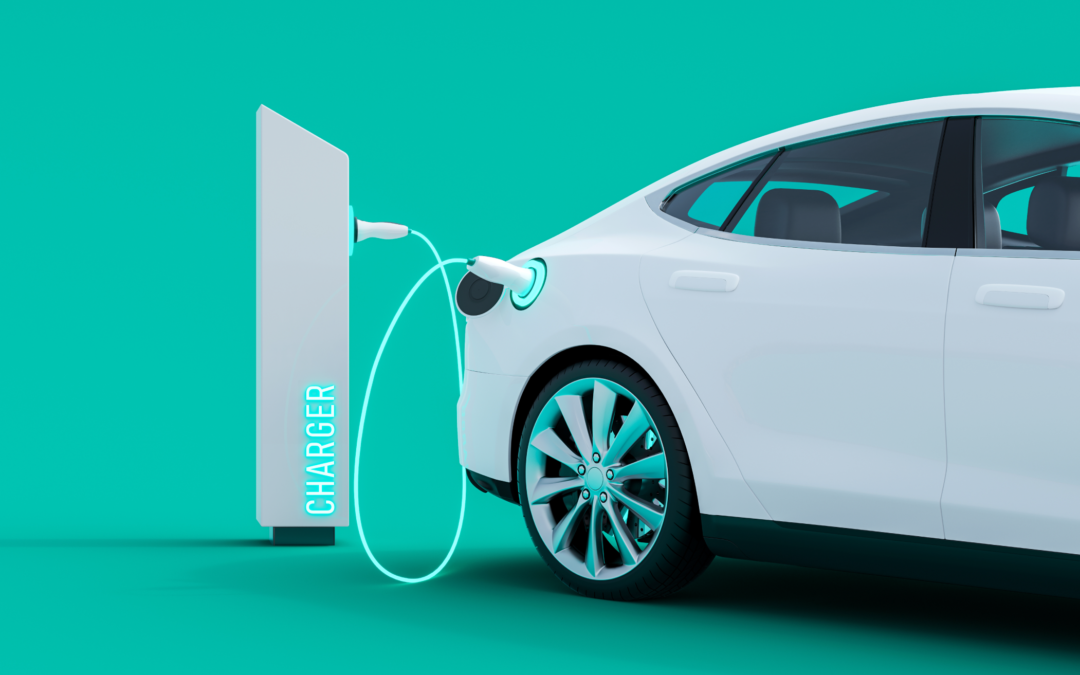Everything You Should Know Before You Decide to Buy EV Charging news
Everything You Should Know Before You Decide to Buy EV Charging news
Blog Article
New Dope in EV Charging: Exactly How the Market Is Advancing to Fulfill Demand
As the electric car (EV) market remains to expand, the charging facilities is undergoing significant makeovers to attend to the surging need. Key growths in ultra-fast charging technologies, paired with wise grid assimilation, are improving the landscape. Developments in battery modern technology pledge enhanced effectiveness and sustainability. The pursuit of international billing requirements remains a crucial element in enabling smooth user experiences and extensive fostering. The implications of these innovations elevate essential questions regarding the future of EV billing and its function in the more comprehensive energy ecological community.
Growth of Charging Facilities
The quick growth of electric automobile (EV) billing framework is an essential part in facilitating the extensive fostering of electric wheelchair. As federal governments, private business, and customers significantly identify the relevance of reducing carbon emissions, investments accountable networks have surged. This infrastructure growth is vital to reduce range stress and anxiety, making certain that EV customers have hassle-free access to charging terminals.
Considerable advancements in charging station innovation and deployment strategies have actually emerged. Urban locations are seeing a proliferation of public charging terminals, while country regions are slowly being integrated into the charging network. Partnerships between automotive producers and charging companies are coming to be extra usual, assisting in the establishment of comprehensive networks that improve individual experience and accessibility.
Additionally, the combination of sustainable energy resources into charging stations is acquiring energy, promoting sustainability in the EV ecosystem. This transition not only sustains ecological objectives yet likewise aligns with the increasing demand for environment-friendly energy solutions amongst consumers.
Ultra-Fast Charging Technologies
Ultra-fast charging modern technologies stand for a substantial leap onward in the EV charging landscape, enabling electrical automobiles to reenergize in a fraction of the moment compared to conventional billing approaches. These technologies normally deliver power levels going beyond 150 kW, with some systems rising to 350 kW or more, significantly minimizing charging times to as little as 15-30 minutes for a substantial charge.
Trick enabling innovations include developments in battery chemistry, power electronic devices, and thermal monitoring systems. High-capacity batteries with boosted thermal stability enable for faster billing without overheating. EV Charging news. In addition, growths in charging facilities, such as liquid-cooled cable televisions and modular charging terminals, promote efficient power transfer, enhancing the total user experience
Major vehicle makers and technology companies are proactively purchasing ultra-fast billing networks, recognizing the essential duty they play in overcoming variety anxiousness and increasing the fostering of electrical lorries. As these technologies become a lot more extensively readily available, the EV market is anticipated to witness substantial development, making electrical mobility a more eye-catching option for consumers. Overall, ultra-fast billing innovations are crucial in forming the future of lasting transportation, leading the means for a much more effective and comprehensive billing ecosystem.
Smart Grid Assimilation

Through demand reaction techniques, wise grid systems can change charging routines based upon grid conditions and electricity pricing. Throughout durations of high demand, billing can be delayed to off-peak hours, resulting in reduced expenses for consumers and reduced strain on the grid. Additionally, vehicle-to-grid (V2G) technologies make it possible for EVs to discharge energy back into the grid, improving and supplying secondary solutions grid stability.
Integration with eco-friendly power resources further boosts the sustainability of EV billing. By check my source aligning billing activities with periods of high solar or wind generation, clever grids advertise a greener charging infrastructure. Eventually, smart grid assimilation not only supports the growing need for EVs but likewise adds to a more lasting and resilient energy future, placing the market for long-term success.
Battery Developments
Among the fast evolution of electrical automobiles (EVs), battery developments stand at the center, driving developments in efficiency, sustainability, and efficiency. As the need for EVs surges, researchers and suppliers are concentrating on improving battery innovations to address difficulties such as array anxiousness and billing times.
Lithium-ion batteries continue to be the most extensively made use of technology, yet new materials and chemistries are emerging to enhance energy density and long life. Solid-state batteries, as an example, guarantee greater power storage space ability and boosted security by changing liquid electrolytes with solid ones. This shift could dramatically decrease the risk of fire and boost the life-span of batteries.
Moreover, developments in battery recycling processes are critical for sustainability. Firms are creating approaches to recoup valuable materials like lithium, cobalt, and nickel from used batteries, promoting a circular economic climate and decreasing environmental impact.

Worldwide Billing Criteria

Efforts are underway to establish click here for more info international billing criteria that help with compatibility among various EV models and charging terminals. Organizations such as the International Electrotechnical Commission (IEC) and the Society of Automotive Engineers (SAE) are functioning collaboratively with auto makers and power companies to create comprehensive standards. EV Charging news. These requirements objective to enhance the charging procedure, lower the requirement for several adapters, and enhance individual experience
Additionally, standardization can dramatically bolster the expansion of the charging network, as it urges financial investment by making facilities development more efficient and foreseeable. As the EV market grows, a unified approach to charging standards will be essential for making sure that consumers can charge their cars conveniently and reliably, thereby sustaining the more comprehensive shift to sustainable transportation.
Conclusion
The electric lorry charging industry is undertaking considerable change to deal with the surging need for sustainable transportation. Improvements accountable framework, ultra-fast modern technologies, smart grid assimilation, and cutting-edge battery options are critical in boosting individual experience and operational performance. The pursuit of international charging requirements is critical for making certain interoperability across various areas and systems. Collectively, these growths position the sector to support a wider adoption of electric vehicles, eventually adding to an extra sustainable future.
Urban locations are seeing an expansion of public billing stations, while country areas are gradually being incorporated right into the billing network. In addition, developments in charging facilities, such as liquid-cooled cable televisions and modular billing stations, assist in reliable power transfer, boosting the overall individual experience.
On the whole, ultra-fast billing innovations are essential in forming the future of sustainable transport, leading the way for a more considerable and efficient billing environment. - EV Charging news
By straightening billing tasks with durations of high solar or wind generation, smart grids promote a greener charging facilities.Efforts are underway to establish worldwide charging standards that help with compatibility amongst various EV designs and billing stations.
Report this page